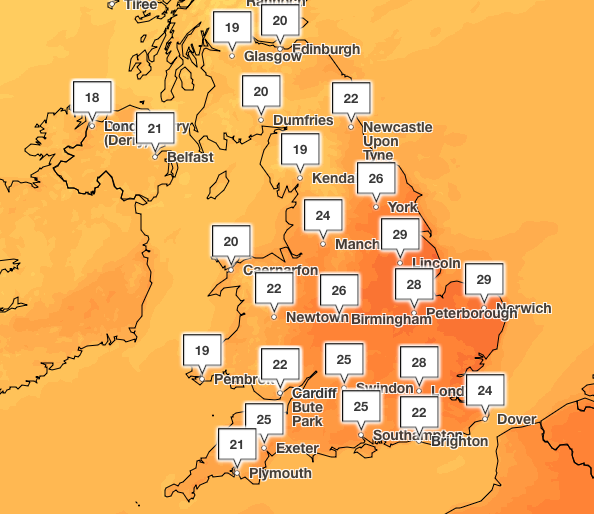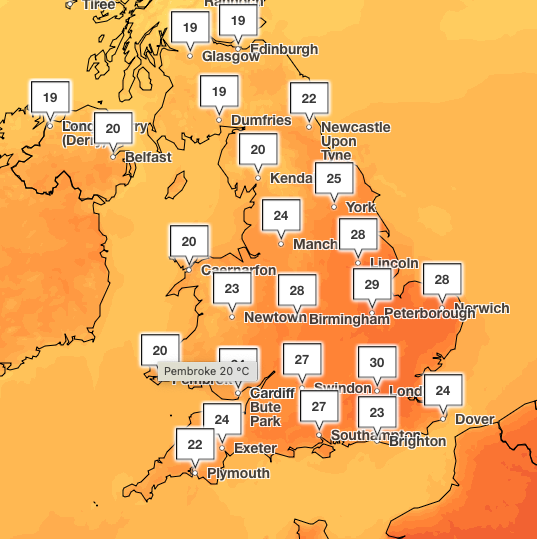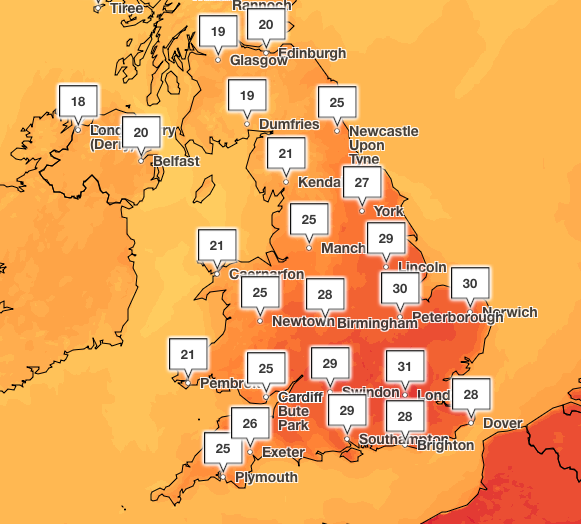Britons are set to bask in another heatwave as temperatures rise to 30C this weekend and get even hotter into next week.
On Friday, temperatures reached 29C in Coningsby, Lincolnshire, and the weather is forecast to climb over the next couple of days, according to the Met Office.
It comes as a second amber heat health alert in two weeks came into force on Friday.
Met Office meteorologist Jonathan Vautrey said: “The big talking point at the moment is the rise in temperatures we’re going to be seeing over the next few days.”
North-west England, parts of Northern Ireland and southern Scotland could see some rain on Saturday, and Scotland will see average temperatures for the time of year, but across England it could hit between 29C and 30C in the south east, the forecaster said.
On Saturday, there will be some clouds and it will be quite blustery, but it will ease on Sunday.

On Sunday, temperatures will pick up, north-western Scotland may still see rain, but everywhere else will be warmer, with expected highs of 30-31C in the south east.
There will be a north-west and south-east split on Monday with a chance of it feeling wetter and windier across the north west, but the heat will remain across central and southern regions.
Temperatures could reach 34C on Monday, which, if it did, would only be the fourth time in June since the 1930s, Mr Vautrey said.
Tuesday will hold the heat, and a maximum temperature of 34C is possible, before it will become cooler towards the mid-20s in the middle of next week, the forecaster added.

An official heatwave is recorded when areas reach a certain temperature for three consecutive days, with thresholds varying from 25C to 28C in different parts of the UK.
It comes as the UKHSA issued an amber heat health alert, covering London, the East Midlands, South East, South West and East of England. It is in place from midday on Friday and will last until 6pm on Tuesday.
The UK Health Security Agency (UKHSA) also issued a yellow alert for Yorkshire and Humber and the West Midlands for the same time period, with the agency warning of significant impacts across health and social care services.

Dr Akshay Deoras, a research scientist in the department of meteorology, University of Reading, urged people to “treat extreme heat with the same respect you’d show a dangerous storm.”
He advised against going outdoors during the hottest part of the day and stressed the importance of staying hydrated – drinking water regularly, even without feeling thirsty, and avoiding alcohol, which “can accelerate dehydration.”
To stay cool, he recommended wearing loose, light-coloured clothing and using a wide-brimmed hat when outside. People were also urged not to brush off symptoms such as dizziness, nausea, rapid heartbeat or headaches.
“These warning signs can rapidly escalate into life-threatening heatstroke if ignored,” he said. Anyone experiencing these symptoms should move to a cooler area, remove excess clothing and apply cold water to the skin, he added.


